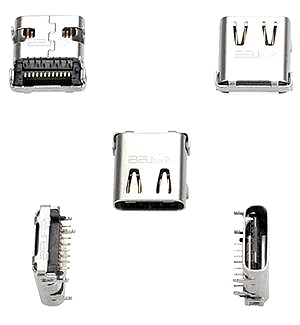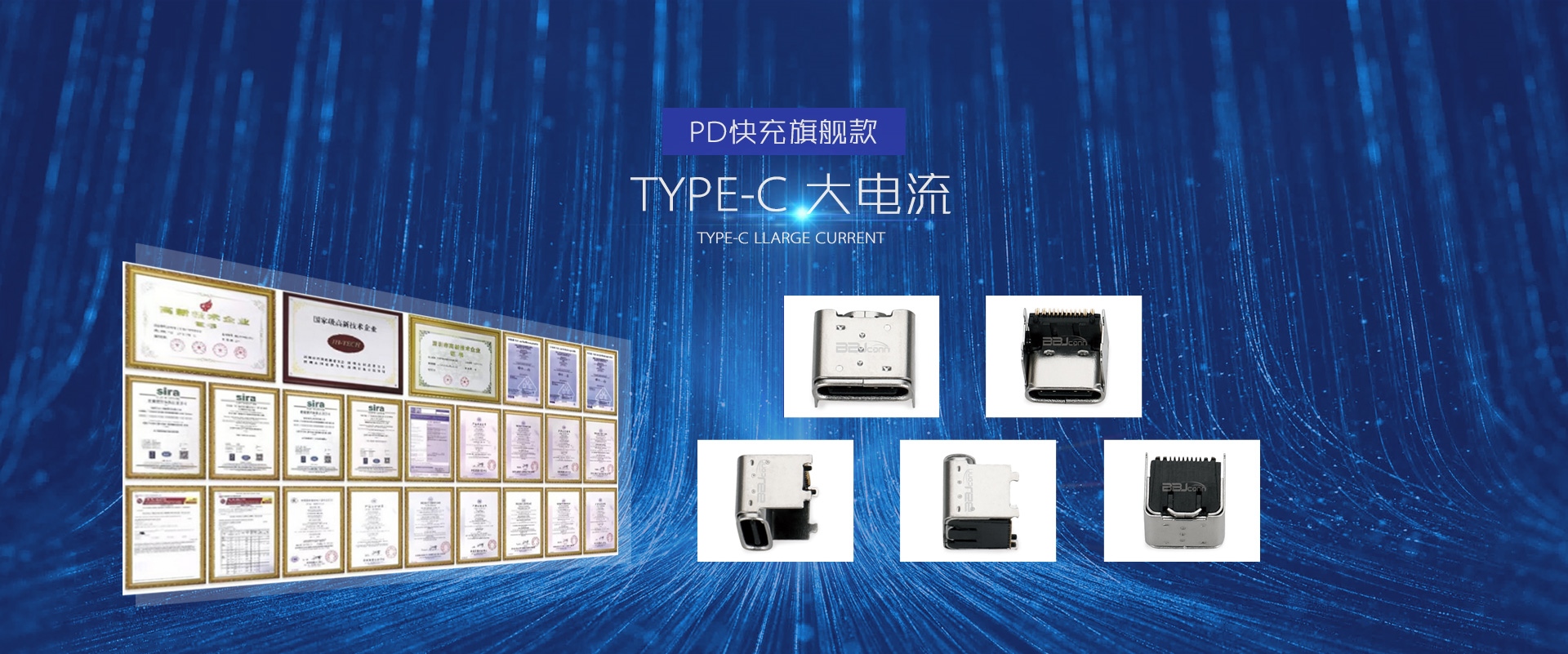Type-C manufacturer’s laboratory: the core force to promote innovation and quality assurance
In the design and manufacturing process of modern consumer electronics products, the Type-C interface, as a new connection standard, has gradually replaced the traditional USB interface and has become the mainstay of many electronic devices due to its high-speed transmission, two-way plug-in and pull-out and multi-functional features. An indispensable part. As a manufacturer of Type-C interface, the construction and operation of the laboratory are particularly important.Type-C manufacturersThe laboratory is not only the core place for product R&D and innovation, but also an important guarantee to ensure that product quality and performance meet international standards. This article will explore the key aspects of Type-C manufacturers' laboratories in R&D innovation, product testing and quality control. effect.
Type-C manufacturer’s laboratory: the source of R&D innovation
The laboratory of Type-C manufacturers is a hotbed of technological innovation. In the laboratory, the R&D team can conduct comprehensive testing and analysis of the performance of the Type-C interface, promoting the birth of new technical solutions and product designs. With the Type-C The application scenarios of C interface continue to expand, from mobile phones to laptops, to home appliances and smart hardware, Type-C manufacturers’ experiments The laboratory requires fine technical optimization based on the needs of different devices. For example, in terms of data transmission speed, power transmission capability, and compatibility, the technical requirements of the Type-C interface are constantly increasing. The laboratory provides an ideal platform for engineers to Conduct in-depth research and development of these technologies and ensure the forward-looking and practicality of product design by simulating different working environments and conditions.
Type-C manufacturer’s laboratory: performance testing and product verification
The laboratories of Type-C manufacturers are also responsible for product performance testing. In order to ensure that Type-C interface products achieve stable and efficient performance in actual applications, the laboratory needs to conduct a number of tests, such as data transmission speed tests, current Voltage testing, durability testing, etc. These tests not only help engineers identify potential equipment It can also verify whether the product complies with industry standards and international certification requirements. Especially for application scenarios that require high-load transmission, such as video output and large-capacity data transmission, Type-C manufacturers’ laboratories need to use high-end test equipment to simulate The actual environment ensures the efficient operation of the interface and avoids product failure due to design problems.

In addition, with the standardization process of the USB Type-C interface, the laboratories of Type-C manufacturers also need to pay close attention to relevant international and regional specifications. For example, the introduction of the latest standards such as USB 3.2 and USB4 requires manufacturers to continuously adjust their designs to maintain product quality. leadership. Therefore, the role of the laboratory is not only to test and optimize existing products, but also to track technology trends at all times to ensure that products can meet the needs of the global market.
Type-C Manufacturer’s Laboratory: Quality Control and Risk Management
In the production process of Type-C products, quality control is a crucial link. The laboratories of Type-C manufacturers undertake strict quality inspection tasks to ensure that each batch of products can meet high standards. Laboratory The quality management system usually includes the inspection of raw materials, real-time monitoring during the production process, and quality spot checks on the final product. Through this series of processes, Type-C manufacturers can conduct quality control at all stages of production to ensure product quality. Stability and consistency.
The quality control of the laboratory not only evaluates product quality through experimental data, but also conducts risk assessment and management through various advanced technical means. For example, stress testing under high-voltage current and high-temperature environments can reveal the Type-C interface Performance under extreme conditions, thereby helping manufacturers foresee potential risks in advance and formulate corresponding improvement measures. This refined risk management not only improves product reliability, but also effectively reduces the problems encountered by customers during use. , enhance the brand’s market competitiveness.
Type-C manufacturer’s laboratory: supporting industry chain collaboration and partner development
In the entire Type-C industry chain, close cooperation between manufacturers, suppliers, and partners is crucial. The Type-C manufacturer's laboratory plays a bridge role in communication and collaboration in this process. Through the laboratory's For technical support, manufacturers can conduct in-depth cooperation with chip suppliers, cable manufacturers and other hardware manufacturers to promote the research and development of standardized products. The laboratory not only provides hardware testing services, but also provides technical consultation and training to partners to help them better Understand the requirements and applications of Type-C technology, thereby improving the technical level of the entire industry chain.
In addition, as the global market demand for Type-C interfaces increases, cooperation between manufacturers has become more important. Type-C manufacturers’ laboratories can provide customized technical support to different customers to meet different industries and applications. needs in the field. For example, mobile phone manufacturers may pay more attention to the fast charging capability of the Type-C interface, while computer manufacturers may pay more attention to data transmission speed and stability. Through technical verification in the laboratory, Type-C manufacturers can provide various types of solutions to demand and promote collaborative development within the industry.
Summarize
The laboratory of Type-C manufacturers is not only the source of product development and innovation, but also a solid cornerstone to ensure product quality and performance. By continuously optimizing product design, conducting strict performance testing and implementing meticulous quality management, the laboratory is Type-C Type-C manufacturers provide strong technical support and risk control. In an increasingly competitive global market environment, Type-C manufacturers’ laboratories are undoubtedly an important force in improving brand competitiveness and promoting industrial progress.
